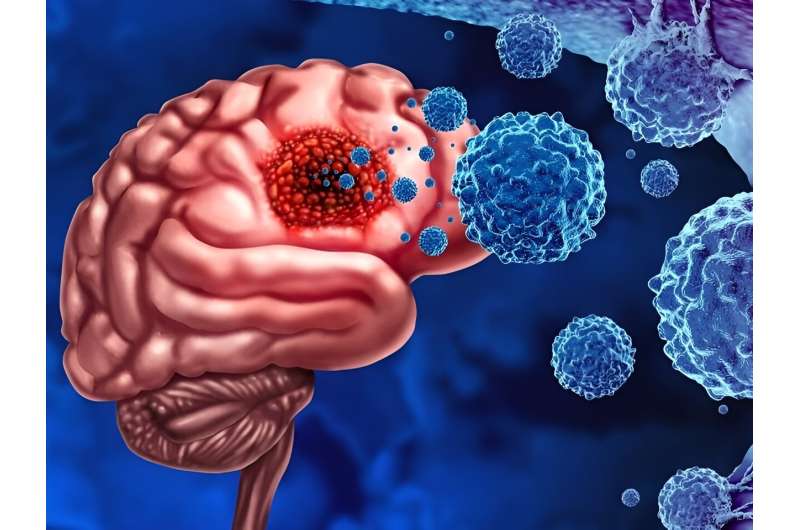Dabrafenib plus trametinib results in significantly more responses and longer progression-free survival than standard chemotherapy for pediatric patients with low-grade glioma with BRAF V600 mutations, according to a study published in the Sept. 21 issue of the New England Journal of Medicine.
Eric Bouffet, M.D., from The Hospital for Sick Children in Toronto, and colleagues conducted a phase 2 trial involving patients with pediatric low-grade glioma with BRAF V600 mutations who were scheduled to receive first-line therapy. In total, 110 patients were randomly assigned to receive dabrafenib plus trametinib or standard chemotherapy (carboplatin plus vincristine; 73 and 37 patients, respectively). The independently assessed overall response (complete or partial response) according to the Response Assessment in Neuro-Oncology criteria was examined as the primary outcome.
The researchers found that an overall response occurred in 47% and 11% of those treated with dabrafenib plus trametinib and those treated with chemotherapy, respectively, at a median follow-up of 18.9 months (risk ratio, 4.31). Clinical benefit was observed in 86% and 46% of patients receiving dabrafenib plus trametinib and chemotherapy, respectively (risk ratio, 1.88). Significantly longer median progression-free survival was seen with dabrafenib plus trametinib versus chemotherapy (20.1 versus 7.4 months; hazard ratio, 0.31). Grade 3 or higher adverse events occurred in 47% and 94% of those receiving dabrafenib plus trametinib and chemotherapy, respectively.
"Overall, these findings show the value of early molecular testing in children with low-grade glioma to determine the presence or absence of BRAF V600 mutations," the authors write.
More information: Eric Bouffet et al, Dabrafenib plus Trametinib in Pediatric Glioma with BRAF V600 Mutations, New England Journal of Medicine (2023). DOI: 10.1056/NEJMoa2303815
Journal information: New England Journal of Medicine
2023 HealthDay. All rights reserved.























